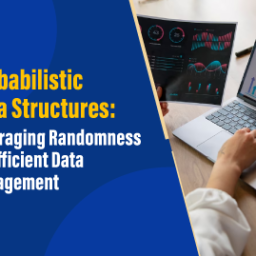Zero-knowledge proof is defined as an encryption scheme in which a prover can prove their case of truth concerning specific data to a verifier without revealing the entire information. Zero-knowledge proof is used to enhance the blockchain platform’s functionality, but it has been around for almost 40 years before the decentralized blockchain ecosystem was created.
There are two basic types of zero-knowledge proofs:
Interactive ZKP:
The interactive zero-knowledge proof involves a continuous series of actions or tasks that the prover must complete in order to satisfy the verifier about the specificity of their information. The majority of the tasks performed under the Interactive zero-knowledge proof involve calculative probability concepts.
Non-Interactive ZKP:
In the non-interactive ZKP, there is no need for interaction between the verifier and prover, and the verification can also be postponed. For better mechanisms, these ZKPs require the addition of software or computers.

9 Possible Implementations of Zero-Knowledge Proof in Blockchain
1. Messaging:
End-to-end encryption is required in messaging so that no one other than the person with whom you are communicating can read your private message. To ensure security, messaging platforms require users to authenticate themselves to the server and vice versa. However, with the introduction of ZKP, they will be able to establish end-to-end trust in the messaging world without leaking any additional information. In the blockchain world, this is one of the most important applications of zero-knowledge proof.
2. Authentication:
Zero-knowledge proof can also improve the security of transmitting sensitive information such as authentication information. It can create a secure channel for users to use their information without revealing it. In this way, you can avoid data leakage in the worst-case scenario.
3. Storage Security:
Another possible application for zero-knowledge proofs (ZKPs) is in the field of a storage utility. Zero-knowledge proof comes with a protocol that protects not only the storage unit but also the information contained within it. The access channels are also protected to provide a seamless and secure experience.
4. Sending Private Blockchain Transactions:
When it comes to sending private blockchain transactions, it is critical to keep them out of the hands of third parties. While traditional methods are somewhat protective, they do have some flaws. This is yet another instance where ZKP is useful. When used correctly, the concept makes it nearly impossible to hack or intercept private blockchain transactions.
5. Extensive documentation:
Because zero-knowledge proof can encrypt data in chunks, it allows one to control specific blocks to provide access to one user while restricting access to others. The concept protects the complex documentation from those who are not authorized to see it in this manner.
6. File System Control:
The file system is another example of an effective zero-knowledge proof implementation. The concept adds various layers of security to files, users, and even logins, making it extremely difficult to hack or manipulate the stored data.
7. Private Blockchain Transactions Transmission:
The transmission of private blockchain exchanges is one of the most noticeable features among various prominent ZKP executions on the blockchain. While sending private Blockchain transactions, they should be protected from any third party. The main source of concern when sending private blockchain transactions is the numerous flaws visible in standard strategies. ZKP’s powerful integration with private blockchain transactions can make it resistant to any type of hacking or interference.
8. Democratizing Vote Verification:
By recording votes on a public blockchain, ZKPs can provide reliable answers for auditable voting (such as Ethereum). As a result, voting processes would no longer require third-party confirmation, as well as the requirement for restriction. ZKPs can enable voters to demonstrate their eligibility for voting, thereby preventing the exposure of sensitive personal data. Similarly, voters can request immutable evidence for their vote to be considered in the final vote count.
9. Sensitive Information Security:
Zero-knowledge proof also improves how blockchain technology transforms transactions. ZKP adds a high level of security to every block containing sensitive banking information, such as your credit card details and history, so that banks only need to manipulate the necessary blocks when a user requests information. Other blocks remain unaltered and thus safe.

Real-World Examples of Zero Knowledge Proofs and Blockchain Convergence
1. ZCash
Zcash is an open-source, permission-less blockchain platform that allows you to keep transactions as “transparent” and “shielded” as needed. Transactions in the former case are governed by a t-addr, just like bitcoin transactions. In the latter case, zk-SNARKs are used as zero-knowledge proofs, and transactions are controlled by a z-addr. It is the first cryptocurrency use case and ZKP application in the cryptocurrency world.
2. ING
ING is a Dutch bank that has launched its zero-knowledge blockchain. They have, however, modified their zero-knowledge system to become a zero-knowledge range proof to reduce the need for computational power. They have set up their zero-knowledge system in this way to increase the fintech benefits of blockchain.
3. ZCoin
The business uses the Zerocoin protocol, which is based on zero-knowledge proof, to enhance security and anonymity during the transaction process. However, what distinguishes it from other projects working on this concept is that it is also scalable. The adoption of zero-knowledge proof into the blockchain is moving too slowly, despite the interest of many international actors.
Obstacles to Integrating ZKP into a Blockchain Project
1. Lack of Standards:
There are now no standards, procedures, or uniform languages that enable app developers and business prospects to interact with the concept of ZKP and fully realize its potential because blockchain technology is still in its development.
2. Extensibility:
Scalability is another obstacle to zero-knowledge proof’s adoption in the blockchain system because these algorithms need a lot of computational power to operate at a high level.
I hope this article may be instructive for academics and students of be engineering courses. MIT researchers proposed the idea for an encryption system, and after dealing with challenges and objections, you can now find the streamlined version.
Author
Abhirami.B,
IV Year,
Department of Information Technology,
Karpagam Institute of Technology.















